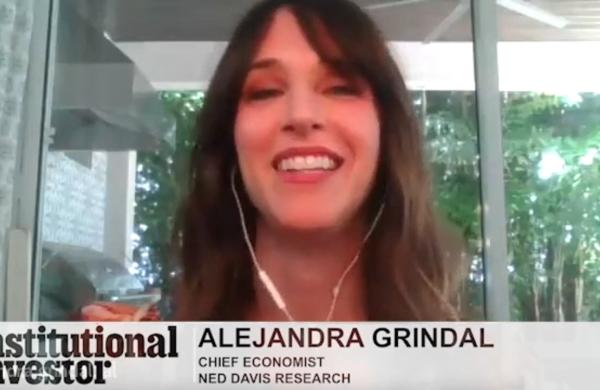After building Xstrata into one of the world's leading mining groups with a series of bold acquisitions over the past five and a half years, CEO Michael Davis is finding it harder to keep up the pace. The South African executive offered C$4.6 billion ($4.3 billion) in March to acquire Toronto-based nickel producer LionOre Mining International, only to have his bid topped twice by Norilsk Nickel. The Russian company was leading the contest for LionOre late last month, with a bid of C$6.8 billion, 49 percent above Xstrata's initial offer, leaving Davis to ponder whether he should up the ante or fold.
"When I started here six years ago, there were very few people competing for companies," Davis told Institutional Investor last month, in the midst of the bid battle. "Now every time we announce, someone else comes out to compete."
Davis is far from alone. Across Europe, chief executives are facing challenges from a record wave of corporate deal making. The value of European mergers and acquisitions was up 74.5 percent in the first five months of the year, to E963 billion ($1.3 trillion), according to Dealogic. Strong markets have fattened corporate wallets, while ample liquidity is giving private equity players unprecedented buying power, making them potential competitors -- or even predators.
"If we look at an acquisition today, we know that we are not only competing with industry rivals but also private equity," says Guillaume Poitrinal, chief executive of French property company Unibail. Poitrinal agreed in April to buy Dutch rival Rodamco for E9.28 billion ($12.5 billion), a deal that will make Unibail the biggest real estate company in Europe and double the value of its property portfolio, to E21.7 billion. "The competition from both rivals and private equity means we are even more diligent when it comes to analyzing value-creating opportunities."
Chief executives also face pressure from the growing ranks of activist investors. The Children's Investment Fund Management (U.K.) put ABN Amro in play earlier this year by attacking management's record, provoking a bidding contest for the Dutch bank between Britain's Barclays and a consortium of Royal Bank of Scotland, Belgian-Dutch bancassurer Fortis and Spain's Banco Santander Central Hispano. That scramble for European supremacy in turn prompted Italy's UniCredit to offer E21.8 billion in shares to acquire domestic rival Capitalia.
"It's a matter of fact that these shareholders are there, and we have to consider them as an important challenge in doing our work well," says Alessandro Profumo, chief executive of UniCredit, Italy's biggest bank by market capitalization. "What is key for me is to be sure that we are the best owner of what we have. We have to manage properly, so the breakup value must be close to the market value."
Profumo, Poitrinal and Davis know what they are talking about -- and their shareholders appreciate their savvy and forthrightness. The trio are among the corporate leaders identified as the best CEOs in Europe, according to an II survey of portfolio managers. (The top-rated CEOs in 31 sectors appear in the table above; the complete ranking and the methodology can be found on our Web site, institutionalinvestor.com.)
At Xstrata, Davis has made a half dozen acquisitions since taking over as CEO in 2001. Those deals have transformed the company from a troubled concern with a modest Sfr886 million ($500 million) market capitalization into the world's fifth-largest mining group, with a market value of £27.4 billion ($54.2 billion). "He's had enormous success bringing private-equity-like techniques and analysis to the mining industry," says one appreciative London-based analyst.
A five-year commodities boom has certainly helped. As Davis contemplates whether to up the bidding for LionOre, the executive must weigh how much longer the good times can last. "Large-scale acquisitions are fraught with risk, with transaction risk, due diligence risk, internal risk and, increasingly, competitive risks," the veteran deal maker says.
Other top CEOs have been more likely to find themselves in the crosshairs of potential predators. At Royal KPN, chief executive A.J. (Ad) Scheepbouwer has been following a strategy he dubs "attack, defend, exploit" to fend off the threat of a takeover of the Dutch telecommunications operator. "We've got the most competitive cost base in the business, and rather than see traditional wire and mobile communications cannibalized by new services offered by others, we are using that advantage to move into these areas ourselves," he says. His aggressive moves into the new growth areas of broadband and Internet telephony have kept KPN's shares trading at a significant premium to the sector.
Stuart Rose, CEO of U.K. retailer Marks & Spencer Group, follows a strategy that he calls "stretching the brand." He has increased sales faster than industry averages by moving M&S into electrical hardware and fine jewelry and developing online shopping. "We think we can grow sales from our Web site fivefold in the next five years," he says.
In pursuing that goal, Rose, like his counterparts, is benefiting from a robust European economy. Growth among the 27 countries of the European Union is expected to be nearly 3 percent this year for a second consecutive year -- and to outpace that of the U.S. for the first time since 2001. Profits for companies in MSCI's European index are expected to rise by 7.8 percent this year, according to UBS.
Of course, some top CEOs excel under tougher conditions. At Finland's UPM-Kymmene Corp., chief executive Jussi Pesonen has worked feverishly over the past three years to bolster results in the face of a global decline in paper demand. The executive has slashed nearly 12 percent of his workforce, expanded in Asia and shifted to higher-margin products, enabling UPM to increase net income by 29.5 percent last year, to E338 million. "What I am most proud of is we've improved profitability by relying on our initiatives and not on market trends," says Pesonen. Many of his CEO peers no doubt hope they will be able to say the same thing when boom times falter.
Subscribers please click here to view rankings
Not a subscriber? Click here to subscribe today to view the full article and ranking





